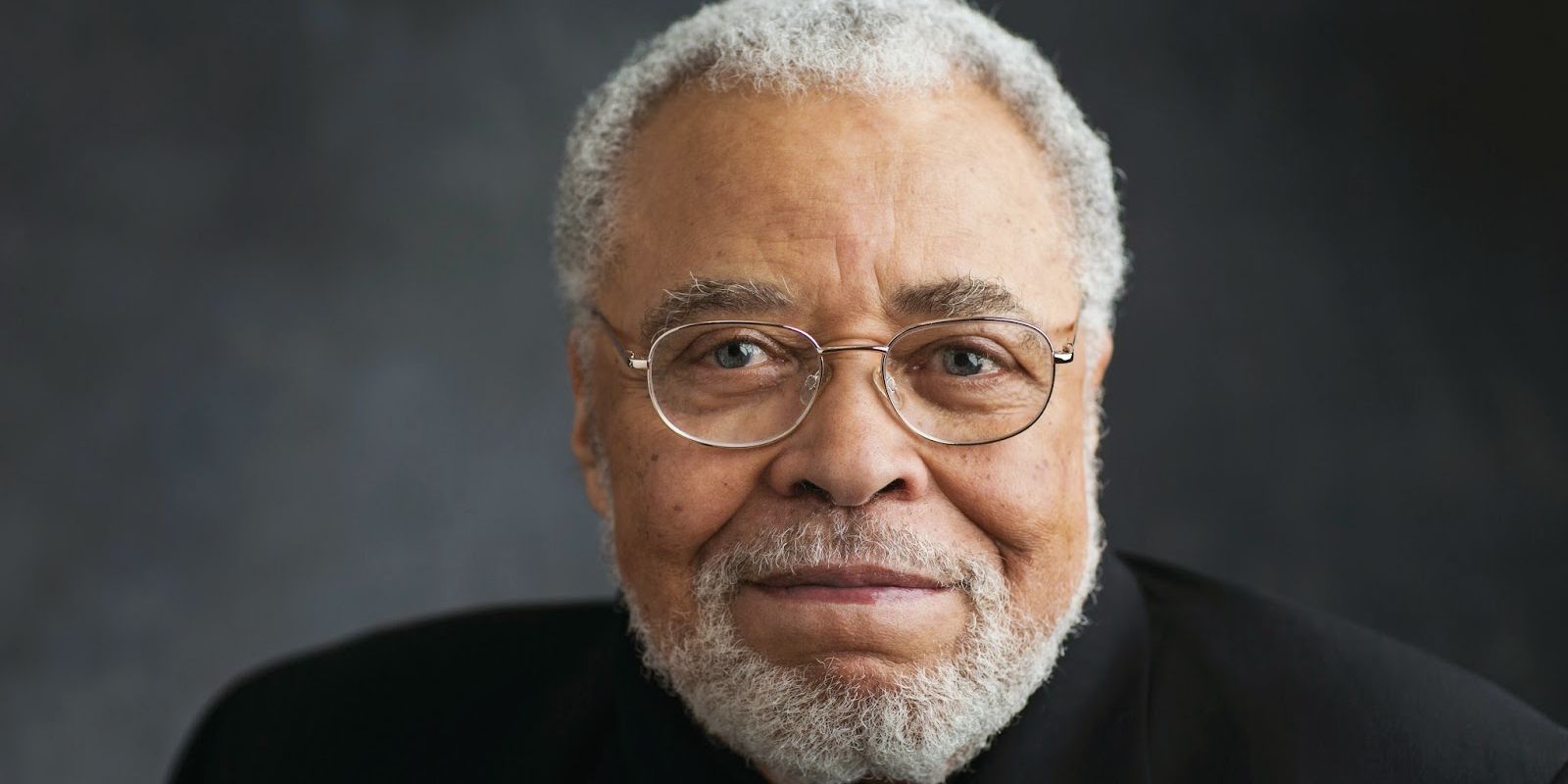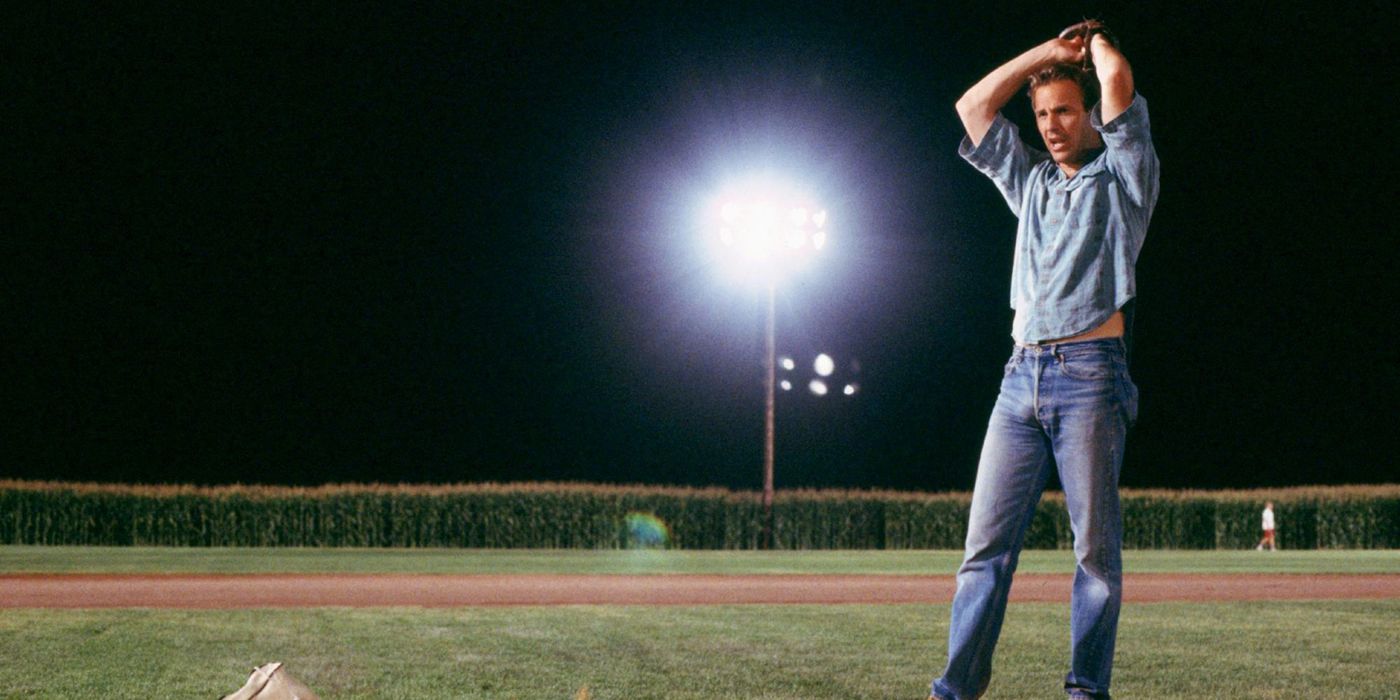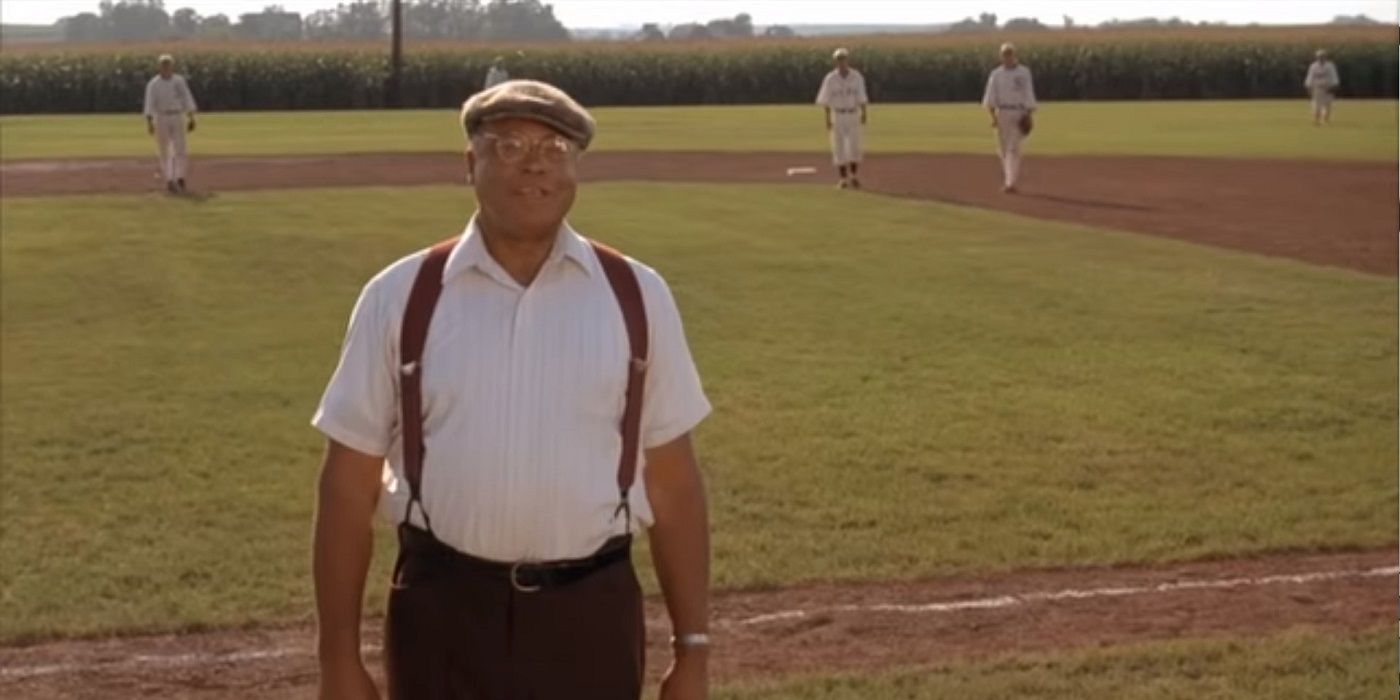The recent announcement that James Earl Jones was retiring from the voice of Darth Vader in the Star Wars saga has led to a celebration of his considerable legacy with the part. Multiple performers have contributed to the Vader through the years, but it was Jones who most tellingly defined him with his booming voice and barely suppressed menace. The actor became Vader's de facto caretaker, and his retirement from the part won't be easy to forget.
But Jones wasn't limited to one role. His career spans a staggering seven decades and touches on a wide array of genres. And as iconic as his vocal performance as Vader was, his best turn came in a much different kind of fantasy. More specifically, a baseball story set in an Iowa cornfield. Field of Dreams, a film most often associated with star Kevin Costner, contains what might be the best cinematic performance Jones ever gave.
Baseball movies have an up-and-down track record in the movies, with classics like Pride of the Yankees cropping up amid misfires and also-rans like Fear Strikes Out. Costner sparked a renaissance in the subgenre with 1988's Bull Durham, a classic that doesn't follow the formula for baseball movies at all. The team's standing in the movie is incidental: unheard of in sports movies. The drama instead focuses on the players and their daily lives, which is a big part of what makes it a classic. Costner immediately followed it up with Field of Dreams, a similar classic that runs directly against what baseball movies are supposed to be.
And yet it's Jones who holds the movie's heart. The film concerns an Iowa farmer, Ray, who hears ghostly whispers in his cornfield promising "if you build it, he will come" and sees a vision of a baseball diamond amid the crops. He builds the field, still unsure of its purpose and running a severe financial risk by using the land for something other than farming. The ghosts of dead baseball legends soon appear in the field, notable "Shoeless Joe" Jackson and the other members of the infamous 1919 "Black Sox" who threw the World Series.
But the mystery persists, and that ultimately leads him to author Terence Mann, played by Jones. Once a firebrand activist and voice for social change, Mann has become despondent and bitter in his later years. Ray had a falling out with his father over one of Mann's books. Finding him and bringing him to the field ultimately induces healing and closure for both of them. Mann rediscovers the idealism that led him to become an activist, while the ghost of Ray's father arrives in uniform, allowing his son to reconcile with him.
Ray is the catalyst that drives the movie, but Mann's journey is more profound. The world has beaten him down as the promise of social change in the '60s gave way to the corporate sell-off of the '80s. He has the same visions and hears the same voices as Ray but no longer trusts himself enough to believe in them. Baseball -- or the ideal of baseball conjured by Ray's field -- ultimately heals him. That all requires a staggering array of emotions to pull off. The film has humorous moments, much of it coming from Mann's sharp tongue, but the actor has to sell the bitterness that Mann conceals with it, as well as the restoration of his hope and faith. He puts it all together perfectly and makes it look easy in the process.
Strangely enough, baseball led to Jones getting the Darth Vader role. According to an article in Force Material, Lucas was likely drawn to the actor after seeing The Bingo Long Traveling All-Stars & Motor Kings, about a barnstorming ball club in the days of segregation. Field of Dreams echoes that movie (which also features another Star Wars stalwart in Billy Dee Williams) in the way it uses baseball to focus on bigger issues. And while Jones's performance as Vader will always be iconic, it lacks the necessary range of emotions to truly show what the actor is capable of. Field of Dreams is his finest hour.



